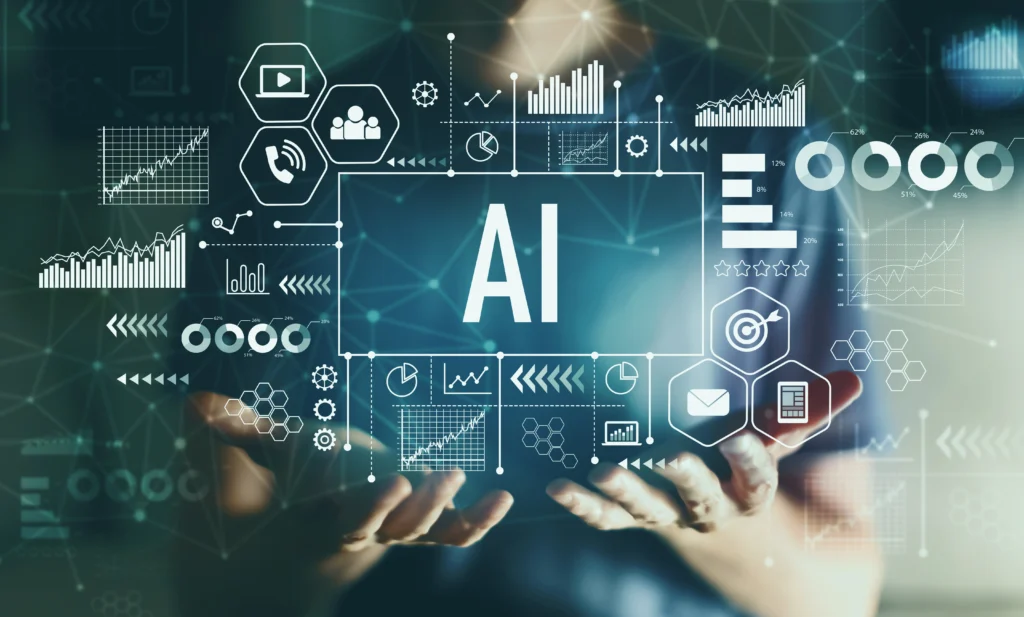
Will AI Replace Software Engineers?
By SOLTECH
It’s among the most searched and discussed questions in software development engineer news on the internet today, and for good reason. Many software development methodologies emphasize automating processes to save costs and time while delivering value.
Take, for instance, the Lean and DevOps methodologies. The Lean methodology’s most distinct feature is quick delivery with the fewest resources possible, while DevOps emphasizes automation and continuous delivery. With AI, implementing these methodologies can become a reality for many software development companies, big and small.
Will AI replace software engineers? We aim to answer this question by exploring how AI for devs has transformed the industry, its role in the development process, and its limitations.
Are Software Engineers in Demand?
Very much so. The demand for software engineers is at an all-time high in 2024. Why? Because the market size for software products has grown tremendously over the last couple of years to a record $698.80 billion, organizations need software engineers to develop these products.
With new technologies growing, the need for experienced software engineers who can run, analyze, and maintain them becomes more important. Even the AI technology itself, while purporting to work as well (and sometimes better) as humans, needs guidance, training, and collaboration with software engineers to function optimally.
Will software engineers be needed in the future?
Yes. Figures from the U.S. Bureau of Labor Statistics indicate that software development has the fastest growth compared to the average occupation at a rate of 25% from 2022 to 2032. Additionally, the BLS reports that over 153,000 software development job openings emerge yearly, further signifying that the future of software development careers is bright.
The Role of AI in Software Development
Understanding AI’s role in software development can help you determine if AI will replace software developers. Let’s explore how AI has impacted software development so far:
Code Generation and Optimization
Code generation enables the realization of software systems, applications, and functionalities. The process can take a lot of time because it might involve several iterations and optimizations to produce efficient and maintainable code. Each iteration may require developers to analyze requirements, design solutions, implement code, test functionality, and refine performance.
With AI, developers can shorten this time by generating and optimizing code. It uses patterns learned from existing codebases, identifies common coding practices, and synthesizes this knowledge to generate code that is syntactically correct and semantically meaningful. However, this requires extensive training and a diverse dataset of high-quality code examples written by experienced developers.
Automation
Software development involves repetitive tasks like code formatting, documentation, review, bug triaging, regression testing, and code refactoring that drain developers’ time. In recent years, AI has stepped in and taken care of many of these tasks, quickening the rate at which developers deliver software products.
Code formatting is a great example of a task that is now streamlined through AI algorithms. They analyze coding style guidelines and automatically format them according to predefined standards. This eliminates the need for developers to format code manually, saving time, reducing formatting errors, and ensuring consistency.
Natural Language Processing (NLP) for Requirements Gathering
Requirements gathering helps developers understand the reasons for building a system or application by collecting target user expectations. NLP shortens the analysis of these requirements with AI and machine learning.
AI’s NLP algorithms can parse large volumes of textual data, such as user interviews, surveys, and documentation, to extract key requirements and user expectations. These algorithms identify relevant keywords, phrases, and entities that explain what users want from the software.
NLP-powered tools can generate structured documentation from unstructured natural language input, which summarizes the key requirements, assumptions, constraints, and acceptance criteria in a standardized format.
DevOps and Continuous Integration Implementation
DevOps and CI form the backbone of Agile software development methodologies, which are recognized as essential frameworks for enabling teams to deliver high-quality software faster. AI in software development makes implementing Agile methodologies achievable by streamlining key processes and enhancing team collaboration.
For instance, AI algorithms can analyze code repositories, identify patterns, and suggest optimizations for CI/CD pipelines. This ensures faster and more reliable software releases. Additionally, AI enhances the efficiency of continuous integration implementation by automating testing, deployment, and feedback processes.
Limitations of AI in Software Development
While AI has made significant strides in software development, it still falls short in several areas, further ensuring the future of software development careers.
AI-Generated Code Isn’t Foolproof
Even if AI generates code, it must go through human analysis to ensure its reliability and accuracy. This is because AI algorithms that generate code rely heavily on the datasets they are trained on.
If these datasets contain inaccuracies, biases, or incomplete information, AI models can produce flawed or suboptimal code. Software development companies still need managers to review the generated code carefully, checking for correctness, efficiency, readability, and adherence to coding standards and best practices.
Inability to Replace Human Creativity and Problem-solving Skills

Software development isn’t just about the technical side of coding. It also requires soft human skills such as intuition, creativity, and contextual understanding that AI has yet to master.
Software development tasks such as architectural design, user experience (UX) design, and conceptualizing innovative solutions require human ingenuity and creativity. AI may struggle to replicate the depth of human insight and the ability to think outside the box when faced with novel or ambiguous problems.
Human problem-solving skills involve more than just finding solutions, they also encompass critical thinking, empathy, and the ability to consider ethical and societal implications. These aspects of problem-solving are difficult to quantify and automate with AI.
Resource Intensiveness
While integrating and implementing AI in the software development process may save your organization time and costs in the long run, the upfront costs may be too much to handle, especially if it’s a small organization.
For example, AI algorithms, particularly those based on deep learning and neural networks, require substantial computational resources, including high-performance CPUs, GPUs, and specialized hardware accelerators, such as TPUs (Tensor Processing Units).
Deploying AI models into production environments requires resources for inference, scalability, and real-time processing. Depending on the complexity and scale of the AI application, you may need additional computing resources, such as cloud instances or dedicated servers, to handle inference requests efficiently. These requirements can add up quickly and may be unachievable even for larger, already established organizations.
Will Software Developers be Replaced by AI?
The short answer is no.
AI is a component in the software development process today, but it’s still in the experimental phase. While many organizations might adopt AI in their software development processes, they still need human engineers to collaborate with and train these models.
Even though AI might perform some of the tasks that developers do, it will transform the role of software developers from more hands-on to managerial rather than replace them. AI has brought about the creation of new roles such as AI software engineer, AI product manager, and software engineer machine learning.



